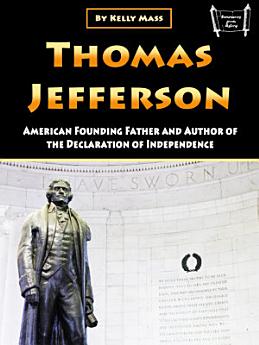Thomas Jefferson: American Founding Father and Author of the Declaration of Independence
About this ebook
The educational foundation that shaped Jefferson's revolutionary thinking began in the classical tradition of Virginia gentlemen but expanded far beyond conventional boundaries through his voracious reading and intellectual curiosity. His early tutor, Reverend William Douglas, introduced him to Latin, Greek, and French, while his later studies with Reverend James Maury exposed him to mathematics, natural philosophy, and the broader intellectual currents of the Enlightenment that were transforming European thought. The emphasis on classical learning that characterized colonial education provided Jefferson with models of republican virtue and civic responsibility drawn from ancient Greece and Rome, while his exposure to contemporary European philosophy introduced him to radical ideas about natural rights, popular sovereignty, and the social contract that would later inform his political theory.








